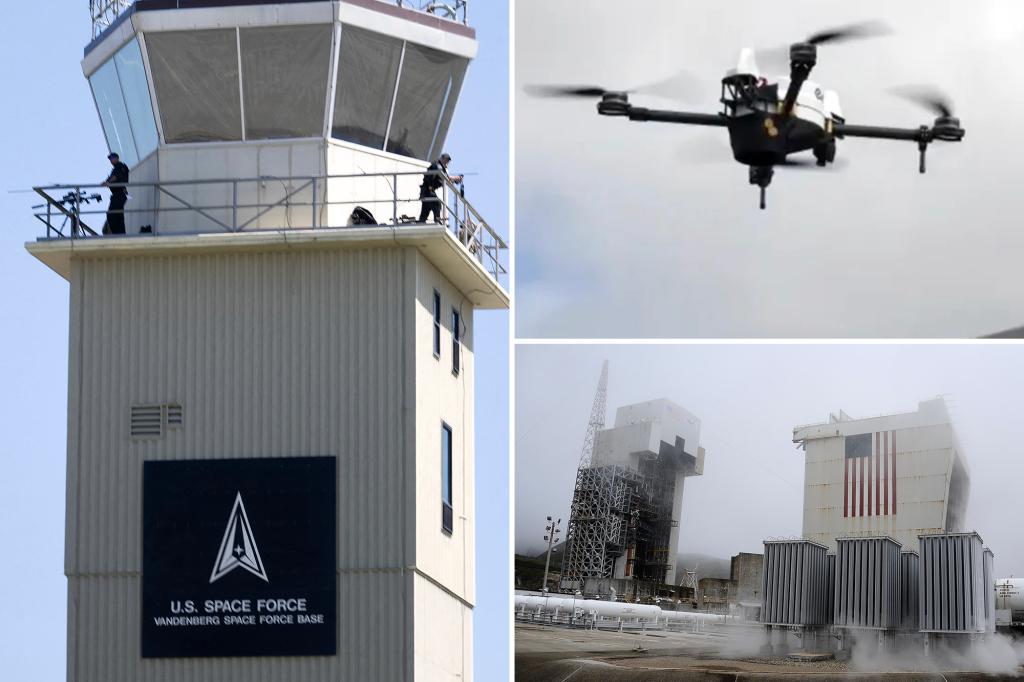The arrest of Yinpiao Zhou, a 39-year-old Chinese citizen residing in Los Angeles, has raised significant concerns regarding national security and the potential vulnerabilities of critical infrastructure to unauthorized surveillance. Zhou stands accused of piloting a drone over Vandenberg Space Force Base, a strategically vital military installation on the California coast, and capturing aerial images without proper authorization. This incident underscores the growing threat posed by readily available drone technology, which can be easily exploited for illicit activities, including espionage and reconnaissance.
The events leading to Zhou’s apprehension began on November 30, 2023, when sophisticated drone detection systems at Vandenberg Space Force Base registered an unidentified unmanned aerial vehicle (UAV) operating within the restricted airspace above the installation. The drone’s flight path originated from Ocean Park, a public area adjacent to the base, and continued for nearly an hour, reaching an altitude of almost one mile. Security personnel dispatched to investigate the intrusion located Zhou and another individual in the park. Upon questioning, Zhou was found to have concealed a drone, matching the description of the UAV observed over the base, within his jacket.
Subsequent forensic examination of the confiscated drone revealed a trove of aerial photographs depicting sensitive areas within Vandenberg Space Force Base. Further scrutiny of Zhou’s cellphone uncovered a Google search conducted a month prior to the incident, specifically inquiring about “Vandenberg Space Force Base Drone Rules.” Moreover, investigators uncovered communications between Zhou and another individual discussing methods to circumvent the drone’s altitude restrictions, potentially enabling it to reach even greater heights and capture more comprehensive imagery of the military installation. This digital trail suggests a deliberate and premeditated plan to conduct unauthorized surveillance of the base.
The timing of Zhou’s recent travel history adds another layer of complexity to the investigation. While holding permanent resident status in the United States, Zhou had returned from China in February 2023. Notably, the individual accompanying him at Ocean Park had entered the U.S. from China just days before the drone incident, on November 26, 2023. These travel details, coupled with the nature of the alleged offense, raise questions about potential foreign involvement or motivations behind the unauthorized surveillance.
Vandenberg Space Force Base plays a pivotal role in national defense and space exploration, hosting Space Launch Delta 30, the unit responsible for West Coast launch operations for the Air Force, Department of Defense, and NASA. The base’s strategic importance makes it a prime target for potential adversaries seeking to gather intelligence on U.S. military capabilities and space operations. Zhou’s alleged actions, if proven, represent a serious breach of security and highlight the need for enhanced measures to protect critical infrastructure from drone-based threats.
The charges against Zhou – failure to register an aircraft not providing transportation and violation of national defense airspace – carry a potential penalty of up to four years in prison. The Justice Department’s swift action in apprehending Zhou prior to his departure for China underscores the seriousness with which authorities are treating this incident. This case serves as a stark reminder of the evolving security landscape and the need for constant vigilance in safeguarding sensitive installations from unauthorized access and surveillance in an era of increasingly sophisticated and accessible drone technology. The ongoing investigation will likely delve deeper into Zhou’s motives, potential connections to foreign entities, and the extent of the information compromised through the unauthorized drone flight, ultimately seeking to determine the full scope of the threat and prevent future occurrences.










